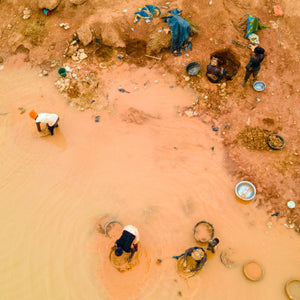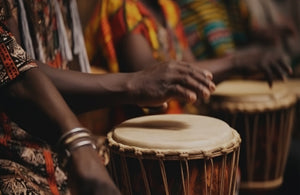Why Are There So Many Languages in Africa?
Africa is a continent of incredible diversity, not just in terms of its landscapes and cultures, but also in its languages. With over 2,000 distinct languages spoken across the continent, Africa is one of the most linguistically diverse regions in the world.
This linguistic richness often raises questions: Why are there so many languages in Africa? We delve into the historical, cultural and geographical factors that contribute to this linguistic diversity, and explore what languages are spoken in Africa.
What languages are spoken in Africa?

Africa's linguistic landscape is incredibly diverse, with languages from several different language families. Some of the major language families represented in Africa include:
Afroasiatic languages: This language family includes Arabic, Amharic and Hausa. Arabic, in particular, has a significant presence across North Africa and the Sahel region, owing to its historical and religious importance.
Niger-Congo languages: The Niger-Congo language family is the largest in Africa, encompassing a wide range of languages, such as Yoruba, Igbo and Swahili. Swahili is widely spoken across East Africa, while Yoruba is prominent in West Africa.
Nilo-Saharan languages: This language family includes languages like Luo, Kanuri and Songhay. They are primarily spoken in the eastern and northeastern regions of Africa.
Khoisan languages: The Khoisan languages are characterized by their unique click consonants and are spoken by indigenous groups in southern Africa, such as the San people.
Austronesian languages: While primarily spoken in Southeast Asia and the Pacific, Malagasy (an Austronesian language) is also spoken in Madagascar, off the eastern coast of Africa.
Indo-European languages: English, French and Portuguese have also become prominent languages across the continent, stemming from European colonization in the 19th and 20th centuries. They continue to play significant roles in administration, education and commerce in many African countries to this day.
Pidgin and Creole languages: In addition to these language families, various pidgin and creole languages have developed, often as a result of cultural and linguistic fusion during the colonial era.
It's essential to note that many African countries are multilingual, with numerous indigenous languages coexisting with official languages inherited from colonization. The wide range of languages spoken across the African continent is a testament to its rich cultural heritage and history.
Why are there so many languages in Africa?
Africa's linguistic diversity can be attributed to a complex interplay of historical, geographical and cultural factors. Let’s delve into them.
Geography

Africa is a vast continent, and its geographic diversity (including mountains, forests, deserts and savannas) has historically limited communication between different regions. This isolation often led to the development of distinct languages within various ethnic groups.
Trade
Africa has a rich history of migration and trade, with different groups coming into contact with one another and exchanging languages. This resulted in linguistic borrowing and the emergence of hybrid languages.
Trade routes that crisscrossed the continent enabled goods, cultures and linguistic traits to converge and mix, giving rise to hybrid languages known as "lingua francas" or "pidgin languages." These languages often incorporated elements from multiple languages and served as a means of communication among diverse linguistic communities.
The Swahili language, for example, emerged as a hybrid language influenced by Arabic, Persian and various African languages due to centuries of trade interactions. Swahili became a lingua franca in East Africa and remains one of the most widely spoken languages in the region today.
Colonialism
Africa’s history of colonization by European powers has had a significant impact on the linguistic makeup of the continent. Colonial powers, including Great Britain, France, Belgium, Germany and Portugal, imposed their languages on African territories, often ruthlessly. They were adopted in education systems, legal frameworks and governmental institutions, leading to the widespread use of English, French, Portuguese and others as languages of administration and communication.
As a result, generations of Africans have grown up speaking European languages alongside their native tongues, creating a linguistic landscape that reflects the enduring legacy of colonialism.
Celebrating Africa's linguistic diversity
The presence of a wide range of languages across Africa is a reflection of its rich cultural tapestry, historical complexities and geographical expanse. While this linguistic diversity can pose challenges in terms of communication and national cohesion, it is also a source of pride and a testament to the continent's resilience and cultural vibrancy.
Africa's languages are not just a means of communication; they are a treasure trove of history, tradition and identity. Understanding the factors contributing to this linguistic diversity helps us appreciate the uniqueness and complexity of the African continent.


